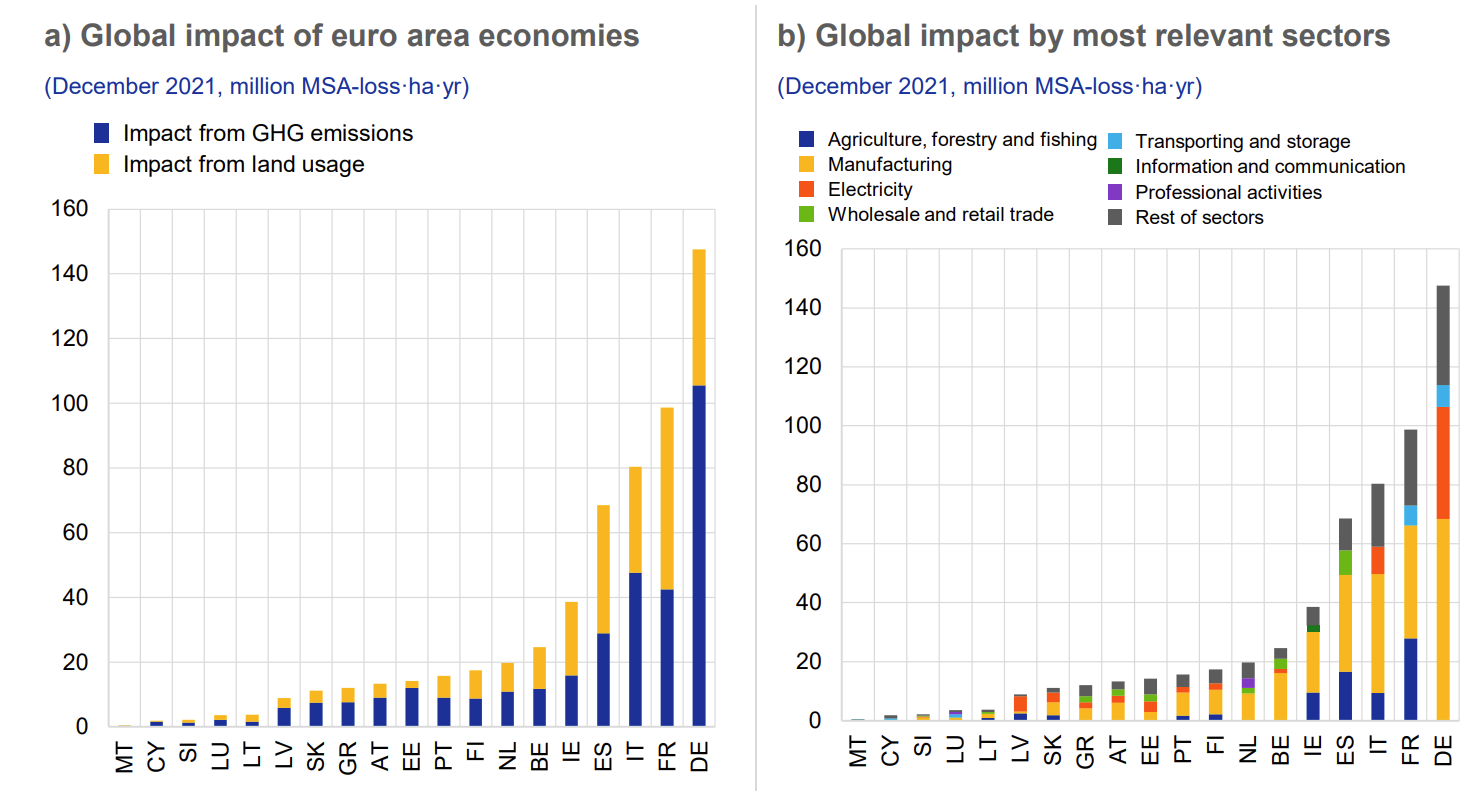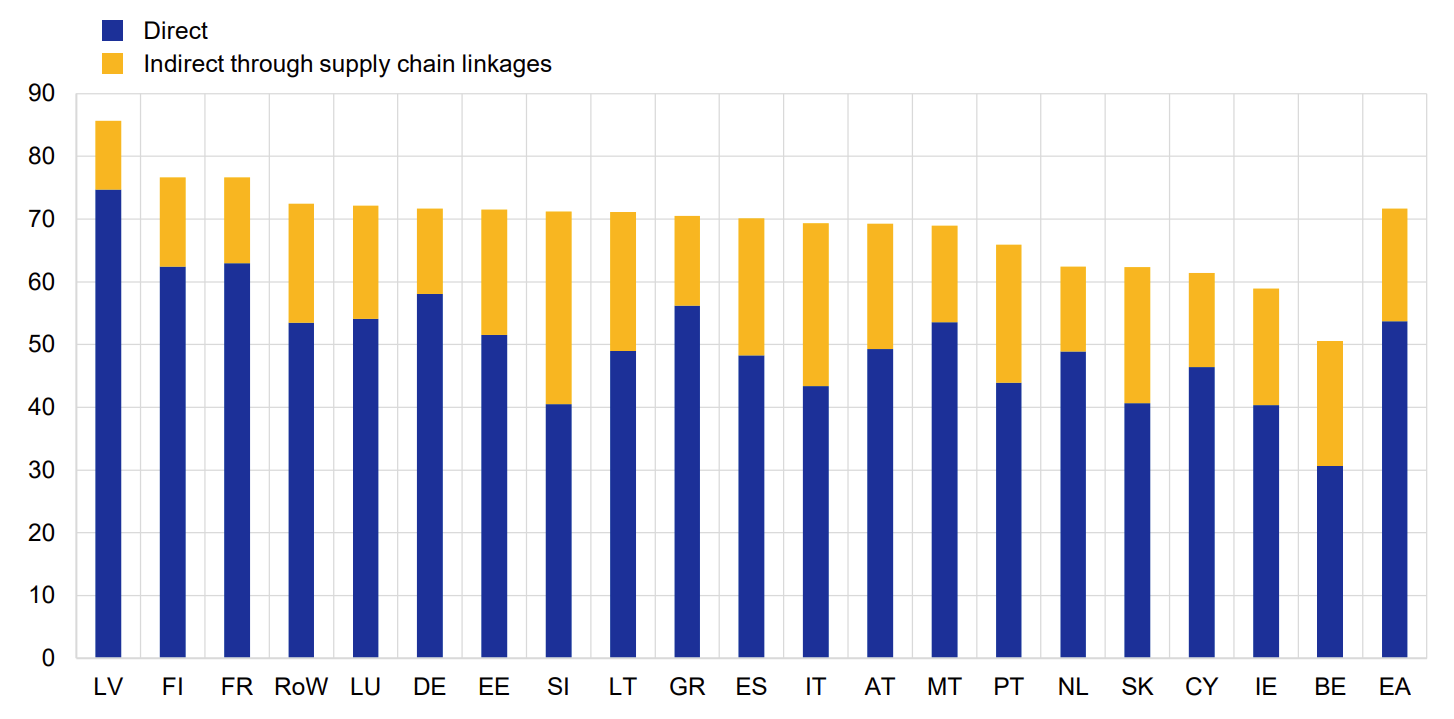
Total biodiversity footprint of NFCs in euro area countries and sectors
Biodiversity – the variety of life on Earth – is essential for sustaining the healthy ecosystems that our economy and banks depend on. Despite the clear benefits of a healthy natural world for people and the economy, humanity is putting immense pressure on nature and biodiversity. Economic activities that rely on healthy nature are often responsible for generating environmental pressures. It is important to assess the impact that firms and financial institutions have on nature degradation, in order to reveal their exposure to transition risk and highlight the need to move towards an economic system that values nature, rather than putting it at risk. This study analyses the contribution of euro area economic activities – and the bank loans provided to enable them – to biodiversity loss by estimating biodiversity footprints. The datasets we use account for approximately €4.3 trillion in corporate loans to around 4.2 million companies located in the euro area, issued by more than 2,500 unique consolidated euro area banks. Considering two primary drivers of biodiversity loss (land-use change and climate change), the results show that the economy has had a significant impact on biodiversity, equivalent to the loss of 582 million hectares of “pristine” natural areas worldwide. Even though the impact on biodiversity is highest in Europe, the supply chains of companies are important determinants of their indirect biodiversity footprint worldwide. Asia and Africa have the largest areas impacted by activities that take place in company supply chains. Additionally, financing of economic activities with a high global impact on nature is concentrated: the ten banks with the highest financing share are responsible for financing around 40% of the total global impact of euro area firms. To avoid risk underestimation, this study highlights the importance of considering both climate change and nature loss when developing risk assessment frameworks, because they are inextricably intertwined.
